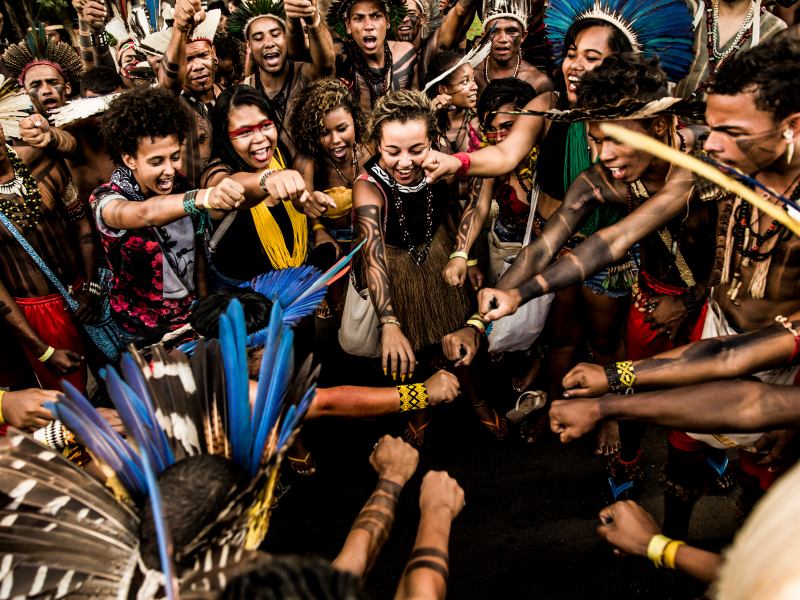- About
- Topics
- Picks
- Audio
- Story
- In-Depth
- Opinion
- News
- Donate
- Signup for our newsletterOur Editors' Best Picks.Send
Read, Debate: Engage.
| topic: | Deforestation |
|---|---|
| located: | Brazil |
| editor: | Ellen Nemitz |
The world’s largest meat-packer, Brazilian JBS, is contributing to the Amazon deforestation, as revealed by a report published by Amnesty International.
Even though the company is not directly responsible for human rights and environmental violations, it has failed to monitor its suppliers. JBS denied all the accusations, affirming to have “an unequivocal zero-deforestation approach throughout its supply chain,” but was more than evasive in responding to tracking the chain: “the traceability of the entire beef supply chain is an industry-wide challenge and a complex task,” they said to the researchers.
JBS signed in 2009 two agreements – one with the Federal Public Prosecutor's Office and other with Greenpeace – to zero the cattle grazing areas’ increase by deforestation, but the report denounces that products from illegal farms, located in violently invaded indigenous territories, were put into its supply chain. In addition, a criminal practice called cattle laundering, that tries to hide the actual source of the animals by transferring them from illegal to legal farms before the sale, is one more trick; Amnesty International affirms, though, that JBS was aware of the risk of buying illegal cattle at least since 2009.
Deforestation for livestock is not a new problem, of course. According to the report, official data point out that 63 per cent of all deforested areas between 1988 and 2014 have become pasture. In the 30 years since then, the amount of animals has risen from 23 to 86 million. However, the attempts of land invasion have accelerated since the beginning of Bolsonaro’s administration and the number of animals increased by 22 per cent between November 2018 and April 2020.
In a country where this economic sector responds for 8 per cent of GDP and the consumption of meat is still culturally ingrained, with 76 per cent of production staying inside, combating the environmental and social problem created by cattle, raise demands for a collective effort. In the report, JBS is asked to implement due diligence and preventive measures by the end of 2020; investors and buyers are encouraged to collaborate in the process and if JBS is not able to run proper measures, stop business.
The government has to demand companies’ tracking system and suspend licenses to livestock in protected areas. Also, it is essential to provide public policies to support workers from this productive chain, who are always affected as a result.
International players have an important role to play too. One example is the deal between Mercosur and the European Union, which can be a tool to pressure companies and governments toward a greener economy. To ensure sustainable development, Brazil's former finance ministers and Central Bank presidents recently launched a formal letter demanding changes in environmental policies in the country.
Finally, individuals can also be part of the process, both by signing a petition that asks JBS not to buy illegally grazed cattle and, as final consumers, by choosing to reduce the meat consumption or to buy meat from certified sources, such as the organic meat association supported by WWF.
Image by Ria Sopala

